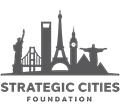Athens
The Presbyterian Church in Greece, a relatively old denomination known as the Greek Evangelical Church, was established in 1858. Until about 2010, it had not planted a new congregation in over half a century. Compared to the Greek Orthodox church, it felt impotent to make a dent in the country’s religious landscape.
Then Al Barth, from the Redeemer Church Planting Center (now called City to City) visited Athens and met with Giotis Kantartzis, the lead pastor of First Evangelical Chrch, the main church in downtown Athens. As a result of that and subsequent meetings, Giotis developed a vision for planting churches.
The first one was in Glyfada, a suburb south of Athens. This was a “relatively” easy church plant because the initial group comprised many members of the mother church who lived in this area of Athens. The second plant was at the other end of the scale. Athens is known for its “anarchist” community. Exarchia, a section of downtown Athens, is regarded as the anarchist capital of the world. Until recently, even the police refused to go into this area it was seen as so dangerous. With two talented church planters, Alex and Tim, a church was established in this area of Athens.
About the same time this church was being planted, the refugee crisis hit Europe. The central congregating point for Syrian, and other, refugees was Victoria Square in downtown Athens. This is a few blocks from Exarchia. The fledgling church in Exarchia established several ministries serving the refugees, particularly the vulnerable women and children. The anarchist community took note of the work of the church. Their love and care of the refugees authenticated the gospel in the minds of many of the anarchists. Soon after that, several leading anarchists came to faith in Christ.
Over a period of about 8 to 10 years, several churches have been planted or are being planted. Some in Farsi, some in Arabic. No longer is there a defensive mentality among the Christians in the Presbyterian church. They have caught the vision for how the Kingdom of God can grow in their country. But they also are developing a vision for the entire Balkan region. This region is largely dominated by an Eastern Orthodox version of Christianity. Thus, the church in Athens which operates in a similar climate, is ideally suited to cast a vision to these neighboring countries.
While there is a long way to go, with many potential pitfalls, there is now a substantial and cohesive effort to reach Greece and the Balkan region. This vision is owned and driven by the Presbyterian Church of Greece. Ten years ago, no-one would have dared to dream of this.
The vision of Strategic Cities Foundation is to replicate this in many other parts of the world. We are presently working with approximately 10 churches, some well on their way to becoming impact or hub churches.

Our Vision
The vision for Strategic Cities Foundation is to catalyze church planting ecosystems in highly influential cities across the world. We envision churches that are Kingdom-minded, desiring to see God’s rule come to bear in their city, the surrounding region, and even beyond. They are churches that are not inward-looking or defensive. They don’t try to build their own kingdom and have a posture of generosity.

Our Strategy
Part of the strategy includes developing the leaders of impact churches so that they expand their vision beyond their immediate cities to the region. This will lead to the next step which is seeing leaders developing the capacity to resource other leaders in their region. In other words, they repeat the process, on a smaller scale, in their neighborhood.

Our Process
Based on the criteria and process used by Europe Collaboration, Strategic Cities Foundation is:
- Donor Initiated
- Research Led
- Analysis Driven
- Donor Decided
